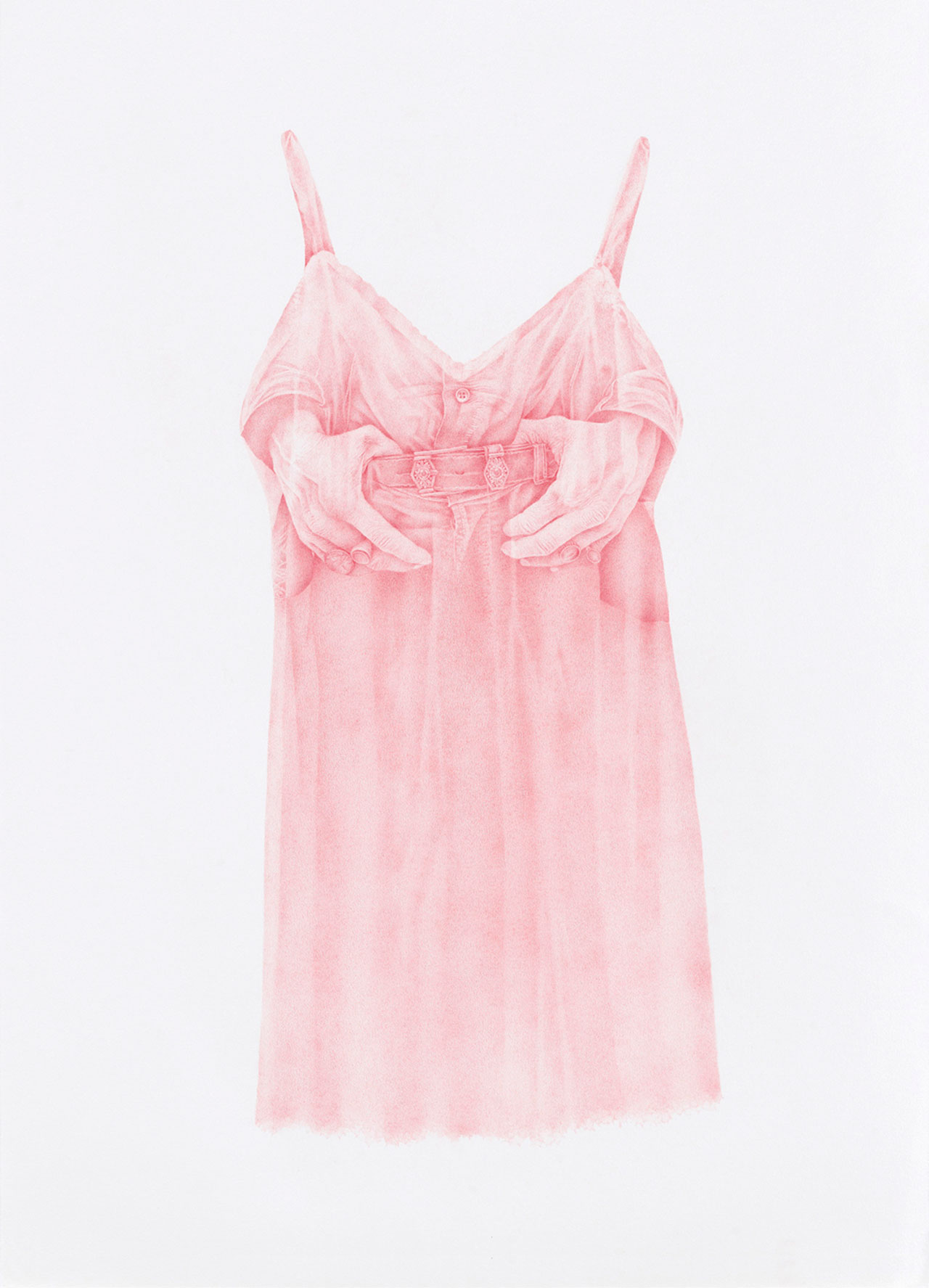- Apply
- Visit
- Request Info
- Give
Published on July 13, 2021
Azita Moradkhani
I am an immigrant from Tehran, Iran living in my current home, United States. While I have lived in both countries, yet I don’t see myself labeled with either of them. I am a citizen of the world and to me the rest is propaganda.
Growing up in Tehran, I was exposed to Persian art and culture as well as Iranian politics, and that double exposure increased my sensitivity to the dynamics of vulnerability and violence that I now explore in my art-making process.
My colored pencil drawings of intimate apparel are based on my first impressions from walking into a Victoria’s Secret store in the U.S. While being exposed to this public environment of lingerie, I was not only thinking about the power of censorship in some countries, but I also felt intimidated by the body image of a woman through the models and design. While my drawings are inspired by luxury intimate lingerie, the images on them depict global stories of different experiences–both figuratively and symbolically–across borders with the hope to leave a mark about untold stories and moving towards more equality for women.
***
This title is a part of a whole poem by Simin Behbahani and refers to the time of war between Iran and Iraq from 1980 to 1988. While, I personally don’t feel connected to this poem, but I think the paradox in my work could be relative to the title.
My colored pencil drawings of intimate lingerie explore interconnected narratives of pain and pleasure through images based on photojournalism, art photography, and historical symbolism. I use an aesthetic of pleasure to entice the viewer, who finds, past lace and filigree, disruptive iconography narrating inherited histories of nation and belief.
The drawings, along with my three-dimensional torsos sculpted out of paper clay, provide a frame for challenging national and sexual representation and ideas regarding power and vulnerability, Orientalism and feminism, political rhetoric and actual lived experience.
Azita Moridkhani


